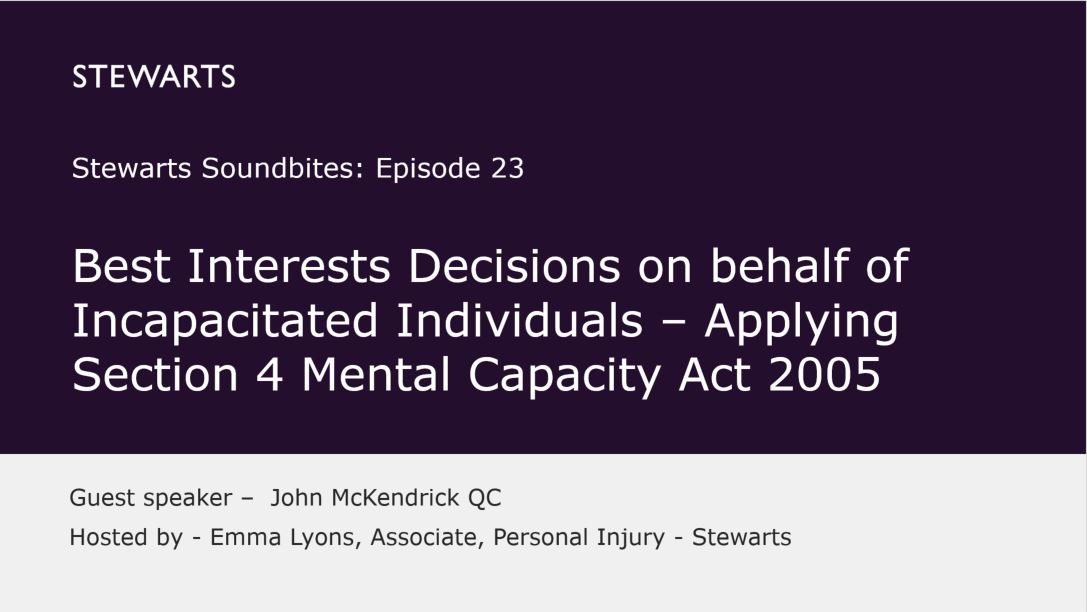The Pro Bono team assists clients with issues surrounding mental capacity on a daily basis. When an individual sustains a brain injury, their ability to make decisions may be impaired. Mental capacity is issue-specific, meaning that individuals with diminished mental capacity can have the ability to make some decisions but not others.
This article considers advanced decisions (also known as living wills), an option available to individuals who wish to make decisions about their future healthcare in the event they lose their mental capacity.
Advance decisions allow you to give instructions about medical treatment that you do not want to have in the future should you not have the requisite mental capacity to make the decision at the time. A common example is a do not resuscitate (DNR) order.
An advance decision will be legally binding as long as you:
- are over 18 years old
- have the requisite mental capacity to make the decision
- specify the treatment you wish to refuse, and
- specify the circumstances in which you wish to refuse treatment.
Your advance decision does not need to be in writing unless you are refusing potentially life-sustaining treatment. However, it is advisable for any advance decision you make to be written, signed by you and witnessed. It is prudent to tell your GP and/or loved about your advance decision, ensuring that your instructions are made clear to anyone involved in your future medical care.
You might wish to consider making an advance statement instead of an advance decision, as an alternative way of stating preferences in relation to your future healthcare. An advanced statement allows you to make general statements which describe your wishes and preferences about your future care should you be able unable to make or communicate a decision or express your preferences in the future. Unlike advance decisions, advance statements are not legally binding but anyone making a decision in your best interests should take your advance statement into account if you are unable to make decisions for yourself.
It is important to review your advance decision regularly to ensure that it details your current wishes. It is also important to understand that if you have made an advance decision and a Lasting Power of Attorney for health and care decisions, the most recent of these will take precedence. This means that if you appoint an attorney after you make your advance decision, they will have authority to overrule it, as long as the decision in question is not excluded under the power of attorney.
An advance decision is an appealing option if there are specific treatments that you do not wish to receive in the future in certain circumstances. You should think carefully about your decision, and you can discuss your options with the people involved in your care. Remember to ensure your decision is legally binding and consider the effects of having both an advance decision in place and a health and welfare attorney appointed.
This article was written by our Senior Paralegal Ralph Johnson
The Legal Service – We are here to help
The Legal Service, delivered by our pro bono team, provides patients with advice without obligation, for however long it takes to resolve the issue. Our support is available regardless of the circumstances of an accident and regardless of whether a patient has a personal injury claim.
In these difficult times, the concerns of our pro bono clients are likely to be more stark than those in more fortunate circumstances. The Legal Service will be available throughout the crisis to help in any way we can to ease the burden on our clients.
To get advice from The Legal Service, please contact Kara Smith by phone on 020 7822 8000 or by email at ksmith@stewartslaw.com.
You can find further information regarding our injury expertise, experience and team on our Personal Injury pages.
Subscribe – In order to receive our news straight to your inbox, subscribe here. Our newsletters are sent no more than once a month.







